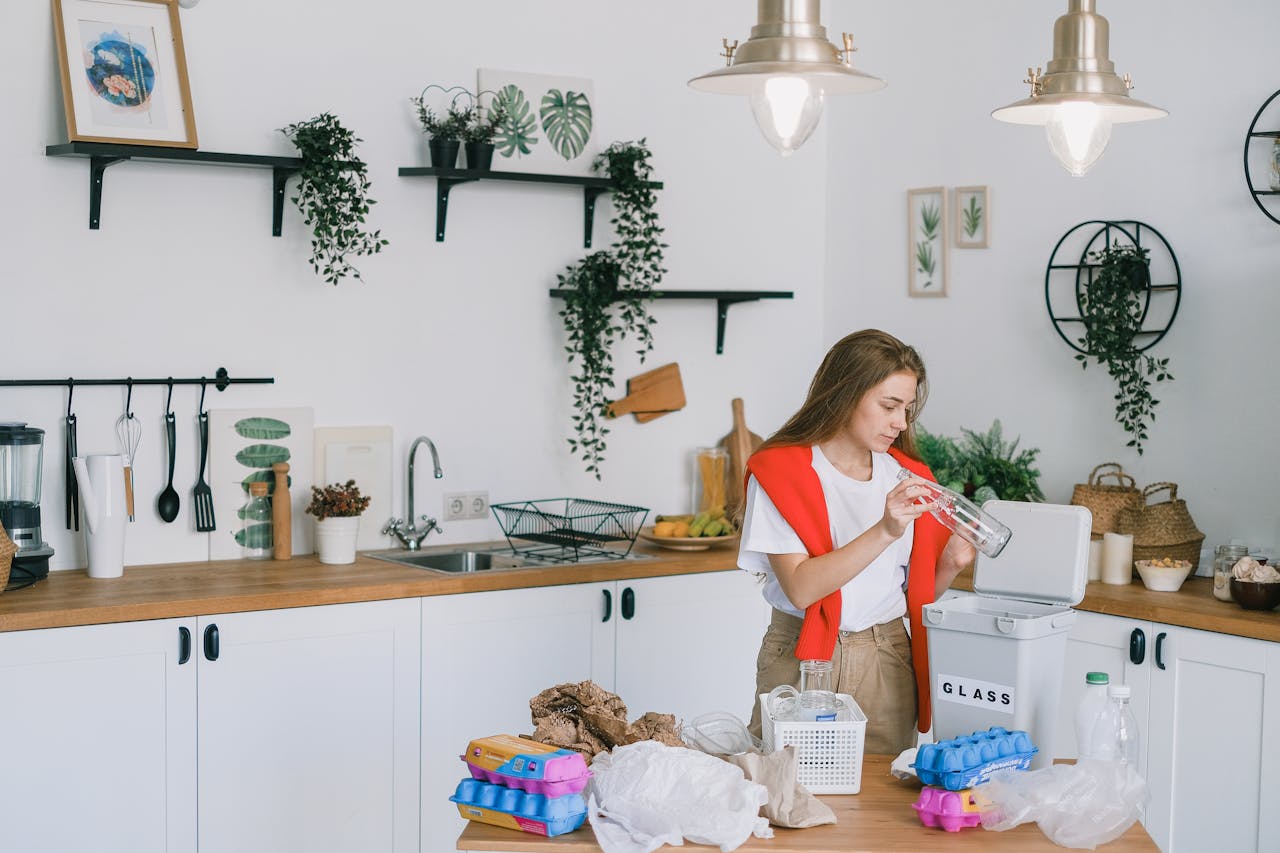Living Lighter: Small Shifts Toward a More Sustainable Home Life
By Jake WalkerLifestyle
Living Lighter: Small Shifts Toward a More Sustainable Home Life
Across the UK, people are moving towards a sustainable lifestyle. It can be with small efforts like using reusable coffee cups or something bigger like creating a composting bin. But these changes are essential as the recycling rate in the UK is at 44.6% in 2023, a small rise from the year before. As the planet becomes hotter and climate change rings the bell, most adults are taking proactive steps to make at least some lifestyle change for the environment. That momentum matters.
Seven in ten (73.6%) of people have made some lifestyle changes to tackle environmental issues. While that number is reassuring, a lot more can be done to improve our recycling rate and carbon footprint.
If you’ve been thinking of creating a calmer and sustainable home life, lowering your energy consumption and generating little wasteYou don’t need a big lifestyle overhaul. You need small changes that fit your week. At LifeSocial.org, we share everyday choices that can help you create a sustainable home and lighten your footprint.
Living Lighter With Small Shifts
England alone generated 21.7 million tonnes of waste from households in 2023. That is a lot of waste generated by us every year. For this to change households need to build simple routines and keep them going.
Collection services are also improving, with guidance for a simpler recycling system, standardising core materials and rolling out weekly food-waste collections for most homes over time. Here are some changes you can make in different areas of your household.
Changes for the Kitchen That Save Money and Reduce Waste
- Create a “use-first” shelf in the fridge and lower the bin dump.
- Plan meals and meal prep on Sundays and reduce unnecessary grocery and take-out runs.
- Store and label bread, herbs, and greens properly and reduce wastage.
Food waste hits wallets the hardest. UK homes wasted 6.0 million tonnes of food in 2022, including a large share of edible food. Start with prevention, then use your caddy or council food-waste service where offered.
Energy And Water Saving Tips For Busy Lives
- Switch devices off at the wall.
- Wash at 30°C, run full loads, and line-dry when possible.
- Fit LEDs in your five most-used fittings.
- Cut shower time by two minutes.
- Use simple draught excluders and close doors to hold heat.
For more practical steps, check out Consumer Council for Water’s tips.
Smarter Recycling and Disposal Options
Recycling can be tricky for some. Rules around recycling vary by council and some don’t understand how to recycle. Let’s start with some basic etiquettes you should follow:
- Separate plastic, paper, food and garden waste in the correct bins.
- Rinse take-out containers before placing them in the recycling bin.
- Keep paper and cardboards dry.
- Batteries, vapes, small tech, paints and aerosols shouldn’t be household bins.
- Check the On-Pack Recycling Labels (OPRL) labels to dispose correctly.
More than half of households put items in general waste that could be recycled, including shampoo and conditioner bottles, cleaning and bleach bottles, foil and aerosols. Avoid wish-cycling these items and use a postcode checker for local instructions.
But if you are dealing with bulky items, responsible disposal matters even more. Services like Proskips ensure household waste is managed sustainably and without added stress.
Repair, Reuse and Share
- Buy fewer, better items.
- Favour products with replaceable parts.
- Mend before replacing.
- Borrow or hire tools.
- Swap kids’ items with friends or at school fairs.
- Use charity shops, repair cafés and local reuse groups to keep items in circulation.
These habits reduce waste and clutter and enrich society and family life.
Sustainable Swaps for a More Sustainable Life
- Reusable cup and bottle: Replace single-use coffee cups and water bottles. Keep them by the door so you never forget to carry them with you
- Lunchbox and cutlery set: Pack leftovers for work or school in a lunchbox with cutlery. Reduce one-time use and throw takeaway packaging.
- Refill stations for detergents: Refill washing-up liquid and surface cleaner. Cut plastic generation and save money.
- Microfibre catcher for laundry: Reduce fibres from synthetics entering waterways. Add a microfibre catcher in every wash.
- LED bulbs: Swap high-use fittings first with lower energy LED bulbs.
- Rechargeable batteries: Use in remotes, toys and torches for long-term savings.
- Food-waste caddy: Capture peelings and plate scraps in a separate caddy. Check your council’s food-waste collection service.
- Indoor airer and wool dryer balls: Shorten drying time with dryer balls and reduce energy consumption by over-using the tumble dryer.
- Heavy-duty tote in the boot: Skip disposable bags for weekly shops with heavy-duty totes.
Steps for a One-hour Weekend Waste Reduction Reset
- 15 minutes: reset the fridge and label a “use-first” box.
- 10 minutes: replace and recharge re-usable batteries and drop-off small-tech in a pot near the door.
- 10 minutes: swap five bulbs to LEDs.
- 15 minutes: review your council list and set bin reminders.
- 10 minutes: bag textiles for donation or repair.
Helpful links for next steps
- WRAP for household food-waste research and practical guides.
- GOV.UK for disposal guidance, plus direct links to council services.
- Simpler Recycling for policy update for what councils must collect.
- Which? For clear recycling guidance by material.
Keep It Light But Keep It Going
The national recycling rate moves when households do the basics well. Perfection is not the goal. Momentum is. Pick one habit this week. Share the win with your family or flatmates. Next week, add another. Over time, your home feels calmer, your bin weighs less and routines start to hold.
If cosy, low-stress living is appealing, pair these habits with this read on embracing hygge at home. The aim is simple. Less waste, less stress, more comfort.
Author: Jake Walker
Jake Walker is a 27-year-old blogger from Manchester, UK, and the creator of Life Social. He writes about navigating your 20s, offering personal stories, practical advice, and plenty of humour. From career tips and fitness to work-life balance and enjoying life on a budget, Jake keeps it real and relatable for anyone trying to make the most of their twenties.






